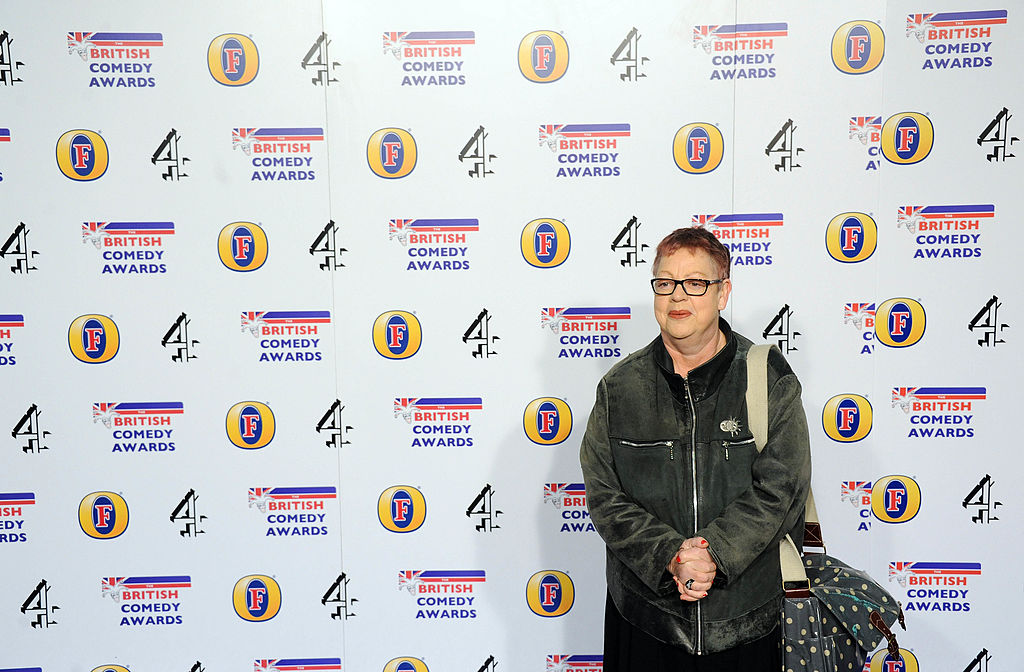The pace of outrage is such these days that before anybody has thought through any one outrage we are all expected to have moved onto the next one. So while everyone is still trying to work out the precise etiquette when female protestors carry out an orchestrated protest at a black tie event, perhaps readers will indulge me if I return to a previous outrage.
People with a long memory will remember the dispute from not much more than a week ago regarding the comedian Jo Brand and her comments on a BBC platform in which she jokily encouraged milkshake-throwers to upgrade to throwing acid at “unpleasant characters”. Reasonable people divided in a number of ways over this. Some people said that Jo Brand was inciting violence. Others pointed out that by taking the words of a comedian literally these people were clearly trying to censor opinion. Still others were clearly engaged in that now commonplace form of political tit-for-tat whereby having watched someone make an insincere claim against a member of your own political tribe you lie in wait to make an insincere claim against a member of their political tribe.
Anyhow, one final aspect of this episode seems to me to be worth noting, specifically as it relates to the case of Jo Brand vs that of Carl Benjamin. Mr Benjamin – who also goes by the online name Sargon of Akkad – is a prominent YouTuber with a following that is in the high six figures. He is the sort of person who the internet has thrown up and who the non-internet world has trouble comprehending. But earlier this year Mr Benjamin stood as a Ukip candidate in the European elections, and so the two worlds met.
As somebody who only has a slight knowledge of his work, it was interesting watching this meeting. For weeks Benjamin’s (ultimately unsuccessful) campaign was forced to focus almost entirely on a tweet of his from 2016 in which he had ‘joked’ about raping a Labour MP.
Now it seemed to me that although the joke was in bad taste, and not funny, it was clearly very far from being a case of incitement or an otherwise plausible threat. When people started to call for the police to become involved it all became distinctly uncomfortable. After all, you can see why somebody wanting to embarrass Carl Benjamin might take this line of thought, and you can see why somebody who wants to score political points against Ukip might do the same. And true Benjamin didn’t exactly help himself (he could have just said it was a joke that hadn’t quite worked, apologised for any misunderstanding and tried to move on). But in any case, the shellacking he received just didn’t seem quite honest.
Only a short while later and Jo Brand makes her ‘joke’ about acid attacks. This time on the platform provided for her by the national broadcaster. And although it is true that Ms Brand is not running for national office, the asymmetry in the way the two cases were treated was striking. For want of a better way to split the difference, the media and entertaining classes who had been so happy to claim that Mr Benjamin was actually threatening to rape an MP were perfectly certain that Ms Brand had no desire to encourage acid attacks against people like Mr Benjamin (who had himself already been ‘milkshaked’).
And then I saw this piece of footage from just days before the acid ‘joke’. It is Jo Brand, acting as the host on the BBC topical news comedy show, ‘Have I Got News for You’. In it Ms Brand mentions Mr Benjamin and says:
‘I think it’s shocking that politics has been reduced to such vile and abusive personal attacks, especially from a twat-faced, beardy, tiny-cocked tosser like him.’
This not only gets a great surge of laughter and clapping from the studio audience but clear approval of the other panellists on the programme, who include a female MP.
Now my own view is that you either find something funny or you don’t, and that there is pretty much an end to it. As it happens I don’t think the above is particularly funny, let alone hilarious or clap-worthy. Is somebody having a beard really such an insult? What does it mean to be ‘twat-faced’? Who decides? Does Jo Brand want to encourage people to use other peoples’ personal appearance against them? About tiny cocks I will say nothing, other than to note the impossibility of using a part of the female anatomy and its alleged size to score any similar point.
But the uncomfortable thing about the above clip is really not just that it is not funny but that it seems an absolutely classic example of what some people now like to term ‘punching down’. Jo Brand and HIGNFY have the whole BBC establishment on their side. And they have almost the entire media class on their side, allowing them great access not only to sympathy but to the fair-interpretation of their words. Carl Benjamin has none of these things, and so there is something distinctly bully-pulpit about the above.
And that really is the thing that I wonder if anyone will focus on. It has always been the case that the media can roll right over a previously unknown person’s life if they wish to do so. And for most people there is very little recourse when that happens. But now this has extended to the stage that it is almost as though certain people are allowed to speak, make jokes, and take risks while other people are not. And the permission to speak or joke depends solely on whether you are already successful and favoured by the right people.
In his book ‘The Tyranny of Silence’ (published four years ago now) the Danish writer Flemming Rose noted that in an increasingly noisy and diverse public square you only really have two directions in which you can go.
The first is to try to silence opinion. The second is to get used to a far noisier public square.
The first option leads to hell. The second has yet to be tried. But worst of all, it seems to me, is this combination of the two where some people are allowed to speak and have their words interpreted fairly while other people are not. That seems to me to be the true problem exposed by the unequal treatment of Jo Brand and Carl Benjamin. For it further deepens an already existing suspicion in our country: which is that it isn’t the words that matter, but the identity of the person speaking them.







Comments